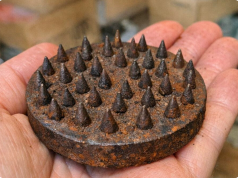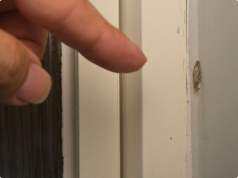Phlegm is a thick, sticky substance produced by the respiratory system, including the throat, nose, and lungs. This mucus plays a vital role in maintaining respiratory health by trapping dust, bacteria, viruses, and other irritants, preventing them from entering the lungs and causing harm. Under normal circumstances, phlegm is cleared naturally through swallowing or coughing. However, excessive mucus production can occur due to colds, allergies, respiratory infections, smoking, or exposure to environmental irritants like pollution or strong odors. When phlegm accumulates, it can cause discomfort, congestion, coughing, and difficulty breathing, making it essential to find effective ways to alleviate this buildup.
Home Remedies to Get Rid of Phlegm and Mucus Naturally
Before reaching for over-the-counter medications or pharmaceutical solutions, consider these natural remedies to help thin and clear mucus buildup. These methods are gentle, effective, and often utilize ingredients you may already have at home.
1. Stay Hydrated
Drinking plenty of fluids is one of the simplest and most effective ways to thin mucus and make it easier to expel. Water, herbal teas, and broths can help keep your respiratory system hydrated, reducing the thickness of phlegm. Warm liquids, such as ginger tea or chamomile tea, can also soothe irritated airways and promote mucus drainage.
2. Use Steam Therapy
Inhaling steam can help loosen phlegm and relieve nasal and chest congestion. To try steam therapy, fill a bowl with hot water, lean over it, and cover your head with a towel to trap the steam. Breathe deeply for 10–15 minutes. Adding a few drops of essential oils like eucalyptus or peppermint can enhance the decongestant effects.
3. Gargle with Salt Water
A warm saltwater gargle can help reduce throat irritation and loosen mucus in the throat. Mix ½ teaspoon of salt in a glass of warm water, gargle for 30 seconds, and spit it out. Repeat several times a day to ease symptoms and clear excess phlegm.
4. Consume Honey
Honey is a natural remedy known for its soothing and antibacterial properties. It can help calm a sore throat and reduce coughing caused by mucus buildup. Add a spoonful of honey to warm water, tea, or lemon juice, or take it directly for quick relief.
5. Drink Herbal Teas
Certain herbal teas, such as ginger, turmeric, or licorice root tea, have anti-inflammatory and expectorant properties that can help break down mucus and ease congestion. Ginger tea, in particular, is excellent for stimulating circulation and loosening phlegm in the respiratory tract.
6. Use a Humidifier
Dry air can worsen mucus production and make it harder to expel phlegm. Using a humidifier in your home adds moisture to the air, helping to keep your airways hydrated and reducing mucus thickness. This is especially helpful during colder months when indoor heating can dry out the air.
7. Try Spices and Herbs
Spices like turmeric, garlic, and cayenne pepper have natural anti-inflammatory and antimicrobial properties that can help reduce mucus production and fight infections. Add these spices to your meals or mix turmeric powder with warm milk (golden milk) for a soothing drink.
8. Perform Postural Drainage
Postural drainage involves lying in specific positions to help gravity drain mucus from the lungs. For example, lie on your side with your head slightly lower than your chest to encourage mucus to move out of the lungs. This technique is often combined with chest percussion (gentle tapping) for better results.
9. Avoid Irritants
Exposure to smoke, strong perfumes, or allergens can worsen mucus production. If you’re a smoker, quitting or reducing smoking can significantly improve respiratory health. Additionally, using an air purifier can help remove allergens and pollutants from your environment.
10. Eat Pineapple
Pineapple contains bromelain, an enzyme with anti-inflammatory and mucolytic properties that can help break down mucus and reduce inflammation in the respiratory tract. Enjoy fresh pineapple slices or drink pineapple juice for natural relief.
When to See a Doctor
While home remedies can effectively manage mild cases of phlegm buildup, persistent or severe symptoms may indicate an underlying condition that requires medical attention. Consult a healthcare professional if you experience:
- Chronic cough lasting more than three weeks
- Blood in your phlegm
- Difficulty breathing or wheezing
- Fever or signs of infection
- Unexplained weight loss
Phlegm is your body’s natural defense mechanism, but excessive buildup can be uncomfortable and disruptive. By understanding why phlegm accumulates and adopting natural remedies to address it, you can support your respiratory health and find relief from congestion. Staying hydrated, using steam therapy, and incorporating soothing herbs and spices into your routine are just a few ways to tackle mucus buildup naturally. However, if symptoms persist or worsen, don’t hesitate to seek medical advice to ensure proper diagnosis and treatment.
Take care of your respiratory system—it’s the key to breathing easy and feeling your best!






